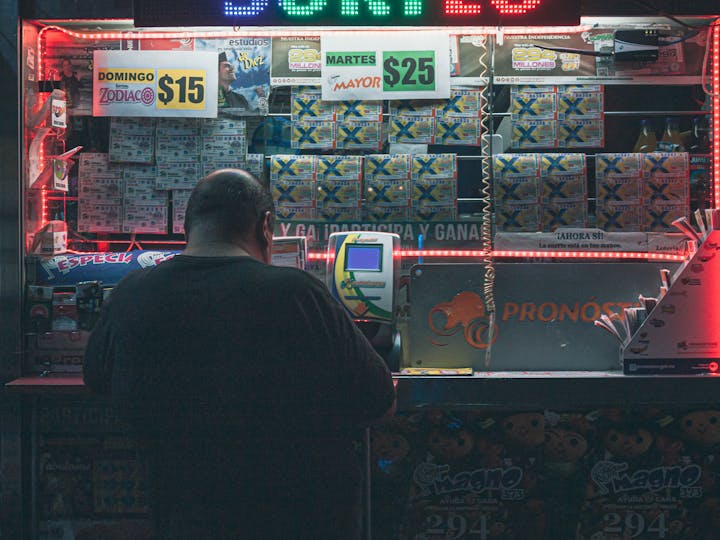Sweepstakes gaming had a rocket strapped to its back in 2020. Fuelled by a pandemic-driven rise in screen time, sweepstakes operators like Chumba Casino and LuckyLand Slots quickly started to pull in a wave of new players thanks to their roulette, bingo, and slot machine-focused games. Even people who’d never played casino games before were hooked on the new trend.
Almost 5 years later and these “sweepstakes” casinos are still just as popular. In fact, they’re bigger than they were before. The likes of the Drake-backed Stake.us and Paris Hilton-sponsored WOW Vegas have all hit over 1 million players each, giving them more power than some casinos you’ll find down the Las Vegas Strip.
However, the sweepstakes casino bubble could be about to burst right at its peak. Or, at least, start to deflate. This is because a growing number of states are actively looking to ban them, with some already having passed legislation to have these sites outlawed.
Players aren’t happy about it — but one of the biggest gaming trends of the past decade might be in trouble.
What is Sweepstakes Gaming?
To get you up to scratch, sweepstakes gaming is a type of online gaming that takes place inside sweepstakes casinos. Here, players can win real prizes and it’s not legally considered gambling. This is why (up until recently) the sweepstakes casinos on sweepstake-casinos.com were legal in 48 out 50 US states.
What makes sweepstakes casinos different is that they don’t let you bet real money. Instead, players are given Gold Coins and Sweeps Coins to use. Gold Coins are just for entertainment, whereas Sweeps Coins can bag you real prizes if you collect enough of them.
These prizes typically include cash transfers, gift cards, and sometimes even cryptocurrencies. This is why (from the player’s perspective) there’s a lot of incentive to keep coming back. After all, what other games let you play for free with the chance to win actual prizes? Not many.
In terms of the actual games available, we’re talking all the casino classics. Slots, poker, blackjack, roulette, you name it. Some of the popular sweepstakes casinos even offer daily and weekly tournaments for players to compete in, with these tournaments often featuring huge prize pools.
From the outside looking in, everything seems pretty harmless. You can’t knock sweepstakes casinos for it, as they’re doing nothing illegal. What’s happened, though, is that many states have started to take a closer look at sweepstakes casinos following a call to action from the American Gaming Association.
This had led to the likes of New York and quite a few other states deciding that sweepstakes casinos are way too similar to traditional gambling sites. As a result, they’ve started pushing to ban them. And it looks like they’re going to be successful.
New York Wants to Ban Sweepstakes Casinos — and So Do Several Other States
At the start of June, New York Attorney General Letitia James made the announcement that New York had stopped a total of 26 online sweepstakes casinos from operating in the state. At the same time, the state also passed an official bill to outright ban sweepstakes casinos forever, with a final signature from Governor Kathy Hochu being the only thing needed to make it law. For operators like Stake.us and Chumba Casino, it’s the worst news possible.
New York law doesn’t allow online gamines to offer gambling “involving risking something of value” in exchange for prizes. In the case of sweepstakes casinos, you’re risking Sweeps Coins for cash and other rewards, so the state is within its rights to implement a ban. As a result, all 26 sweepstakes gaming sites that were previously operating there are no longer allowed to — and they likely won’t be returning anytime soon once the bill becomes law.
It’s not just New York that’s clamping down on sweepstakes gaming. Texas, Ohio, Florida, and a handful of other states have all introduced their own bills to ban sweepstakes casinos, too. By the time 2026 arrives, we could be looking at a situation where at least 10 or so states have officially banned sweepstakes casinos, making them much less accessible than before. For the players, this is nightmare fuel, but it’s not the end.
Sweepstakes Casinos Won’t Disappear Just Yet
Even though a growing number of states are pushing hard against sweepstakes casinos, it doesn’t mean sweepstakes gaming is going to disappear. In fact, quite the opposite.
The past half-decade has seen sites like Stake.us, WOW Vegas, and High 5 Casino attract millions of players. At the same time, big-name celebrities and influencers — we’re talking Drake, DJ Khaled, Paris Hilton, Ryan Seacrest, and countless others — have gotten involved with promoting these sites. Simply put, they have too many players and too much credit in the bank to simply get blown off the map.
Therefore, what’s likely going to happen is this: more states will keep banning sweepstakes casinos, but they’ll still remain legal in the majority of them. After all, the remaining states have yet to regulate the “legal grey area” that sweepstakes casinos operate in, and it could take them quite some time to do this if they ever decided to. Until then, sweeps casinos won’t be disappearing just yet.
It’s also worth realizing the tax revenue that sweepstakes gaming sites generate isn’t something that most states will want to wave good-bye to. Combine this with the fact that so many new players are still discovering sweepstakes casinos for the first time, it becomes incredibly hard to see an iGaming future that doesn’t involve sweepstakes casinos, even if it’s on a slightly smaller scale.
So, if you’re a big sweepstakes casino fan — or spend a lot of your time watching sweepstakes streams on popular streaming sites like Twitch and Kick — there’s no need to panic. These sites will be here for the long run. However, those living in states where they get banned will have to pivot, whether that means using VPNs or remaining patient for future changes to the law.
Are Sweepstakes Casinos Really Gambling Sites?
The big debate surrounding sweepstakes gaming is whether or not it’s really gambling. Essentially, you have two camps. And it’s fair to say that none of them are 100% right.
In the eyes of some, sweepstakes casinos do promote gambling. You’re exchanging real money for Sweeps Coins and then using those coins to compete for prizes, so it’s technically gambling but in a roundabout way. That is, at least, from their perspective.
Then you have the pro-sweepstakes camp. They claim that because these virtual coins have zero value in the real world, sweepstakes gaming can’t be classed as legitimate gambling. They also argue that players aren’t forced to use Sweeps Coins and can simply stick to using Gold Coins for free if they wish, which is an option across all sweepstakes casino sites.
Whichever side of the fence you fall on, it’s obviously a sticky situation. But what’s clear to see is that a growing number of states are joining the first camp: sweepstakes casinos are gambling sites and should be subject to the same laws that traditional online casinos like BetMGM have to follow.
What’s interesting about sweepstakes casinos, though, is that the gambling element only comes from “Sweeps Coins”. If these sites featured just Gold Coins — the other virtual coins that players can use purely for entertainment purposes — they’d be under zero pressure from the law.
Because of this, what we might see in the near future is some sweepstakes casinos start shifting towards a Gold Coins-only model, where sites instead get their revenue from ads rather than relying on Sweeps Coins purchases. It would mean they don’t generate as much revenue, but at least sites like Stake.us would be able to keep operating without being subject to strict gambling laws
Summary
That’s just speculation. For now, at least, sweepstakes casinos will keep operating as normal. But if more states keep banning them, these casinos will have no option except to adapt. Ultimately, it will come down to the Sweeps Coins side of things and whether they adapt the purchasing model, as this is what’s causing the “gambling” dilemma.


